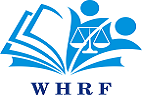HONDURAS
During the COVID-19 pandemic, the security forces used excessive force to implement lockdowns and to police protests. Health workers highlighted the health risks posed by the lack of personal protection equipment (PPE) in hospitals. Honduras remained one of the most lethal countries for human rights defenders.
Background
Levels of violence and impunity remained high, as well as poverty and inequality. In November, devastating landslides and floods caused by hurricanes Eta and Lota resulted in at least 94 deaths and affected almost 4 million people, raising serious concerns about the rights to food, water and livelihood of already marginalized groups.
Excessive use of force
The police and the military used excessive force to implement national and local curfews and lockdowns introduced in response to the pandemic and to suppress protests sparked by the lack of state food aid and unemployment. Civil society organizations documented injuries and arbitrary detentions (including of journalists covering protests), and at least one possible extrajudicial execution.
Right to health
Health workers
The pandemic worsened the already precarious working conditions of health workers, amid allegations of corruption and complaints about the inadequate management of emergency funds for the purchase of medicines and materials. Health workers repeatedly highlighted the lack of PPE.
In several hospitals, health workers were asked to sign confidentiality agreements prohibiting them from speaking publicly about their concerns.
Rights of migrants and refugees
In January and October, thousands of Hondurans joined the so-called caravans to leave the country and flee violence and poverty. The vast majority were returned or deported to Honduras from Mexico, the USA and Guatemala, often without their rights being guaranteed.
Human rights defenders
Human rights defenders, particularly those defending the territory, environment and access to land, continued to face high levels of violence. Most of these attacks remained unpunished.
By the end of the year, the trial of a businessman detained in 2018 and accused of being behind the killing of Indigenous leader Berta Cáceres had not started. The National Council of Popular and Indigenous Organizations of Honduras (COPINH) repeatedly highlighted delays and irregularities in proceedings. There was no progress in the investigation into others believed to be responsible for planning and ordering her killing.
Five men from the Garifuna Triunfo de la Cruz community, including four Black Fraternal Organization of Honduras (OFRANEH) activists, were allegedly forcibly disappeared on 18 July by unidentified individuals wearing police-type clothing. The men’s fate and whereabouts remained unknown at the end of the year.
Human rights defenders also continued to face unfounded judicial proceedings to intimidate and harass them and to hinder their human rights work. Among those targeted were members of the Municipal Committee for the Defence of Common and Public Assets (CMDBCP).
In June, a new Penal Code entered into force that contains provisions that are sometimes ambiguous or contrary to the principle of legality and could be arbitrarily interpreted to restrict the exercise of freedom of assembly and association and to reinforce the criminalization of human rights defenders.
Gender-based violence
Women and girls faced high levels of gender-based violence. The National University of Honduras’ observatory on violence reported 224 femicides between January and December. According to the NGO Women’s Peace Movement “Visitación Padilla”, more than 65,000 calls about domestic and intra-family violence were registered through the National Emergency System 911 between January and October.
The organization Cattrachas reported at least 19 violent deaths of LGBTI people, as well as high levels of impunity for such crimes.
